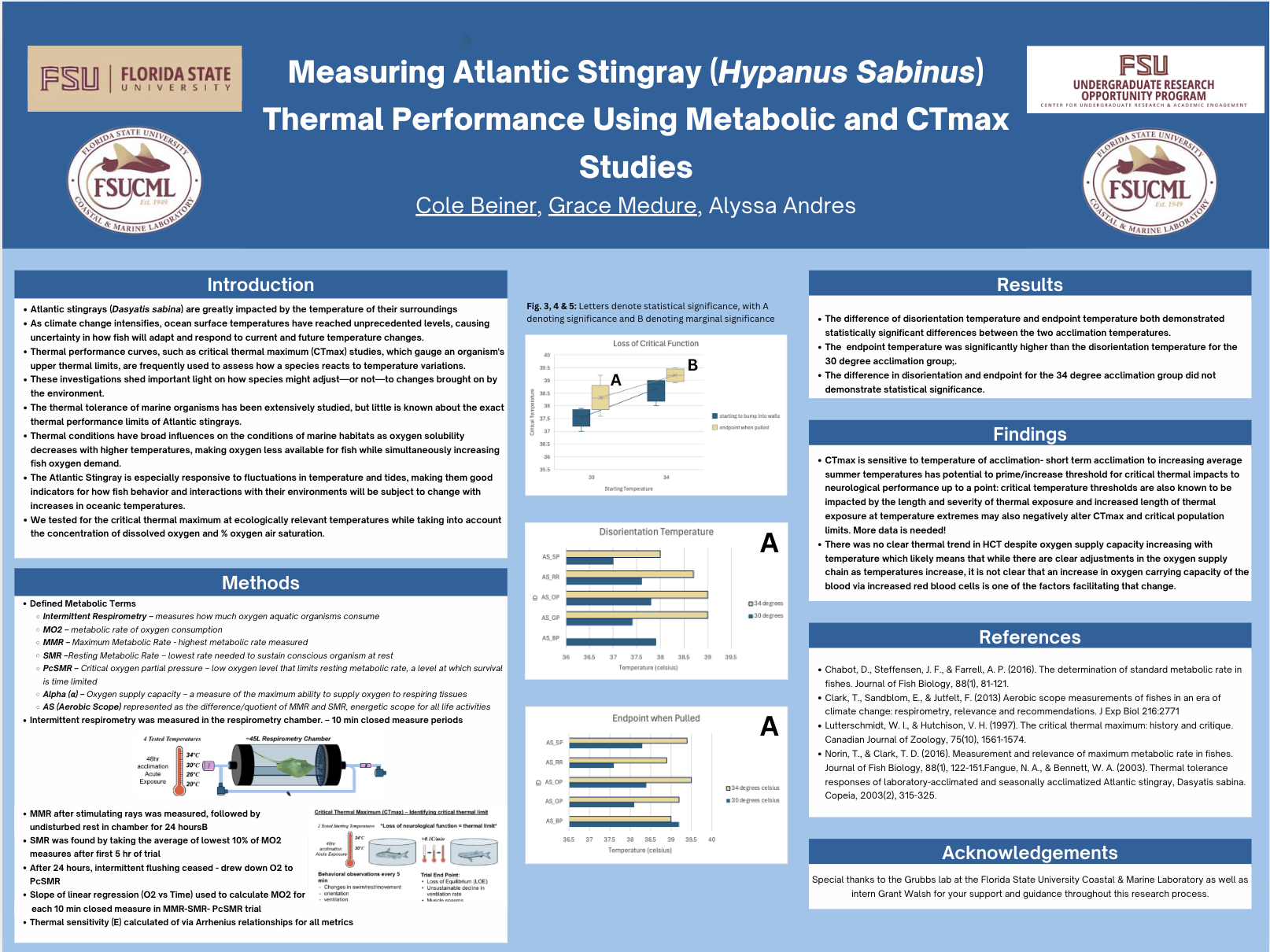Research Symposium
25th annual Undergraduate Research Symposium, April 1, 2025
Grace Medure Poster Session 3: 1:45 pm - 2:45 pm/ Poster #99

BIO
My name is Grace Medure, and I am from Jacksonville, Florida. I am an honors student at Florida State University, majoring in Interdisciplinary Medical Sciences with a focus on pre-clinical professions. I am passionate about research, particularly how environmental stressors like temperature and hypoxia affect marine species' performance and survival in regard to climate change. My top career interests are in dermatology and reconstructive plastic surgery, and I plan to attend either medical school or PA school after graduation. In addition to research, I am actively involved in Alpha Epsilon Delta, Kappa Delta, the Honors Student Association, and various service organizations, where I engage in leadership roles and volunteer work. I also volunteer regularly at a hospice center, which has strengthened my ability to provide compassionate care and reinforced my passion for medicine. My dedication to academic excellence and community service reflects my drive to make a meaningful impact in both medicine and society.
Measuring Atlantic Stingray (Hypanus Sabinus) Thermal Performance Using Metabolic and CTmax Studies
Authors: Grace Medure, Alyssa AndresStudent Major: IMS: Pre-clinical Professions
Mentor: Alyssa Andres
Mentor's Department: FSU Coastal and Marine Laboratory Mentor's College: College of Arts and Sciences Co-Presenters: Cole Beiner
Abstract
The Atlantic Stingray is a coastal benthic elasmobranch species found in estuarine and marine habitats, where it experiences seasonal temperature changes. Understanding how these species respond to warming ocean conditions is crucial for predicting future shifts in their movement, habitat use, and physiological limits. Our research focuses on the metabolic and energetic impacts that rising ocean temperatures will have on Atlantic Stingray (Hypanus sabinus). Studying this will help biologists project fishes’ responses to rising ocean temperatures and shifts in viable habitats in reference to climate change. Using respirometry to directly measure fish oxygen consumption and Critical Thermal Maximum (CTmax) trials across starting temperatures of acclimation, this research used metabolic and behavioral challenges to identify temperature sensitivity and thermal limits of Atlantic Stingrays, known to influence fish behavior and viable habitat. We found that CTmax is sensitive to the temperature of acclimation; the rays typically reached a point of disorientation at 37.8 and 38.6 degrees Celsius and a critical thermal maximum of 38.5 and 39.5 degrees Celsius when acclimated to water at 30 & 34 degrees Celsius. We additionally found that all metabolic rates increase with temperature with different levels of temperature sensitivity leading to changes in aerobic scope as temperatures rise. Additionally, our experimental observations found that while the Atlantic Stingray may be tolerant of high temperatures, rising average temperatures and the increasing presence of marine heatwaves may lead to changes in population energy budgets, movement, viable habitat, and habitat use.
Keywords: CTmax, Respirometry, Stringray

